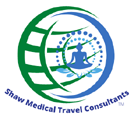Wellness tourism is defined as travel for the purpose of promoting health and well-being through physical, psychological or spiritual activities. Popular perceptions of the importance of diet, fitness and healthy practices have transformed and empowered vibrant new business sectors into the wellness markets. Wellness tourism is defined by the nonprofit Global Wellness Institute (GWI) as “travel associated with the pursuit of maintaining or enhancing one’s personal well-being “. According to GWI wellness tourism is an extension of the values of the lifestyle of the traveler which is not just about the destination. The incorporation of elements of health, prevention, self-actualization, experience and mindfulness into daily lives is becoming prevalent around the world – travel with an exclusive focus on Wellness centered experiences or destinations.

The question of is there benefit of Wellness travel to psychological well-being and how much can be achieved through Wellness travel and holistic experiences.
Depression is a disease very debilitating and potentially affecting many aspects of one’s life. In 2017 the National Survey on Drug Use and Health (NSDUH) reported up to about 7.1% of the US population was diagnosed with Major depression, with a biggest bulk of that being females 7.1% than males 5.3%. The prevalence of adults with a diagnosis of major depression was predominant amongst the age group of 18 to 25 years old, representing about 13.1%. About 4.5% of adults above 18 had major depressive episodes that led to significant impairment, and up to 35% did not receive any treatment for their major depressive state. Per the World Health Organization, the reasons for not receiving treatment for their disorder are due to barriers like lack of resources, lack of trained health professionals, social stigma associated with mental disorders, and inaccurate assessment /diagnosis /misdiagnosis. About 50% of adults with depression report some degree of difficulty with work, home or social activities because of their depression symptoms and 30% reported moderate or extreme difficulty.

Per the World Health Organization, depression is a common mental disorder, globally more than 264 million people of all ages suffer from depression. The burden of depression and other mental health conditions is on the rise globally. Depression is a leading cause of disability worldwide and is a major contributor to the overall global burden of disease. Close to 800,000 people die due to suicide every year, suicide is the 2nd leading cause of death in 15 to 29 yr olds. Even during ordinary times women physicians, resident physicians, medical students face higher rates of depression then general population. Every year an estimated 400 physicians commit suicide with women physicians facing a much higher risk than the general population.
Traditionally grief and medical training has been considered weak or unprofessional and doctors have been encouraged to keep their feelings inside and they offer news the technique of compartmentalization and avoiding thoughts or emotions including isolation and distraction. As physicians the importance of self-care is important. Well known factors associated with physician depression include lack of sleep, dealing with death, making mistakes, 24 hour responsibility, self-criticism, and difficult relationships with coworkers and patients .these factors are likely to be compounded as physicians face increased pressures from COVID-19 pandemic (Rebekah Bernard MD, Medical Economics).

Benefit of holistic wellness experiences: – achieving balance ..
Many wellness practices have as a foundational principle that balance is the secret of wellness and ridding our bodies of illness. Ayurveda believes that like increases like and that opposites balance. Balancing building, nourishing, anabolic in nature, while the other is reducing, lightening, and catabolic in nature. The stress response is unequivocally a taking away and catabolic in nature; if like increases like and opposites balance then the antidote to excess stress is to offer our systems an abundance of building up, and nourishing qualities through our diets, our lifestyle, our practices and our relationships.
Many other methods of achieving holistic Wellness and balance within our lives are practiced through yoga, Tai chi, Acupuncture, Tui Na, Cupping, herbs and other remedies and interventions.
Many of these practices benefit the treatment of major depression by working concurrently with traditional medical recommendations and possibly medications by addressing underlying conditions, removing toxins, and or directly on the depression symptoms individually.

Individual changes that you can make in your life can include the following:
…….remember SLICE
- Slow down thoughts and activities, reduce your To Do List, and learn to be present.
- Learn to appreciate calm, redirect energies internally, mind and body by practices such as yoga, structured breathing exercises, meditation etc.
-
Indulge in quality self-care which involves learning to appreciate ourselves your individuality, become aware of your needs and your desires and what makes you feel good.
- Take a long bath.
- Drink herbal tea.
- Massage your feet before bed.
- Enjoy nature.
- Read an uplifting book.
- Write in a journal.
- Enjoy art – drawing, painting, writing stories, photography.
- Balanced diet, adequate rest.
- Supportive loving relationships.
- Commit to a daily routine – our routine is particularly important when you are trying to balance the effects of excess stress. Regularity is important for balance within our physiological and mental being.
- Eat a balanced diet – our routine is particularly important when you are trying to balance the effects of excess stress. Regularity is important for balance within our physiological and mental being.
Recent global stresses affecting our health, economy, personal and interpersonal relationships have caused many psychological and mental conditions to develop or worsen. So let’s not forget the benefit of and the importance of Wellness and alternative treatment nor intervention that can work concurrently with traditional medical recommendations.

